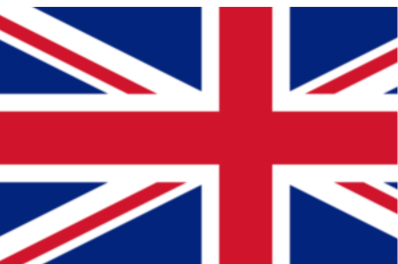World
United Kingdom

The United Kingdom, commonly referred to as the UK or simply Britain, is a sovereign country in the North Atlantic Ocean, just off the coast of Europe. England, Scotland, Wales, and Northern Ireland form the United Kingdom (UK). Its history and culture have had a significant effect on the rest of the globe.
The British Isles, on which the United Kingdom sits, are the biggest island in Europe. Almost 68 million people live in a landmass that is around 242,000 square kilometers in total extent. London, located in southeast England, serves as the nation’s administrative center. The United Kingdom is bounded on all sides by water: the Atlantic, the North Sea, the English Channel, and the Irish Sea.
The history of the United Kingdom is extensive and varied, spanning many centuries. In 43 A.D., the Roman Empire invaded and conquered the area, which had previously been occupied by a number of Celtic tribes. Following the Roman Empire’s collapse in the fifth century, the area was conquered by Germanic peoples who formed the Anglo-Saxon kingdoms. The Normans invaded and conquered England in 1066, ushering in a period of increased French dominance.
The United Kingdom’s colonial empire, which it built up over the ages, helped make it a powerful global force. The country was an essential part of the Allied armies throughout both World Wars, playing a pivotal role in both. Significant social and economic changes have occurred in the United Kingdom since World War II, including the establishment of a welfare state and the end of the country’s colonial empire.
The cultural contributions of the United Kingdom are widely recognized and celebrated. Shakespeare, the Beatles, and Banksy are just a few of the famous artists and musicians that call the United Kingdom home. Fish and chips, roast beef, and shepherd’s pie are just a few of the classic British meals that have made the country famous across the world.
Politically, the United Kingdom is governed as a constitutional monarchy, which means that a monarch serves as the country’s head of state. Queen Elizabeth II has been reigning as monarch since she ascended in 1952. The United Kingdom is a parliamentary democracy similar to that of the United States, with two chambers of government (the House of Commons and the House of Lords). The monarch appoints the Prime Minister to serve as the country’s leader.
The British economy is the fifth biggest in the world and is worth over $2.7 trillion. It has a highly developed private and public sector economy, making it a mixed economy. Financial services are a major industry in London and the United Kingdom. Nevertheless, the country’s industrial industry is robust, especially in the aerospace and automobile industries.
Racism is a worldwide problem that touches individuals of all ages and backgrounds. Like with other countries, racism has been a continuous concern in the UK for generations. The lives of black people in the UK have been profoundly affected by the persistence of racial discrimination and prejudice, notwithstanding the advances made in recent years.
Slavery, colonialism, and economic exploitation have all been experienced by black people at the hands of whites. Because of this, black people in the UK have been left with a legacy of systematic racism. This persistent discrimination against black people in the UK was brought to light by the Windrush controversy, in which Caribbean migrants were wrongfully deported.
The criminal justice system in the United Kingdom is a prominent setting for racist attitudes and practices. Black individuals are more likely to be stopped and searched by the police and are overrepresented in jails. Despite there being no proof that black people commit more crimes than white people, a research by the UK government revealed that black individuals were nine times more likely to be stopped and searched than white people.
Discrimination against black individuals in the UK workforce is a real issue. Despite having equivalent education and work experience, black persons are more likely to be jobless or working for low wages, according to several studies. Other data suggests that black persons are less likely to be promoted to high positions than white people, while being similarly qualified.
Racism is also an issue in the UK’s educational system, which is a major problem for black students. When compared to their white classmates, black children are more likely to experience bullying and academic failure. It might be even more challenging for black pupils to locate role models and mentors when there is a shortage of black educators in the classroom.
Outside these spheres, racism in the UK has far-reaching consequences for black people. It has the potential to compromise their psychological well-being, social integration, and social participation. In addition to making it harder to seek aid and support when needed, racism can also cause persons of African descent to lose faith in organizations and authorities.
The issue of racism in the UK has received fresh scrutiny thanks to the Black Lives Matter campaign. The movement has brought attention to the importance of societal shifts to end racial prejudice and injustice. In addition, this has prompted requests for more black individuals to hold influential roles.
United Kingdom
Overall, black people in the UK continue to be negatively impacted by racism in many ways. Racism’s effects may be observed in the classroom, the workplace, and the courtroom. Black Lives Matter has brought attention to these problems and called for action. The government and people of the United Kingdom need to do more to combat racism and discrimination so that everyone can live in an environment free from bias and prejudice.













You must be logged in to post a comment Login